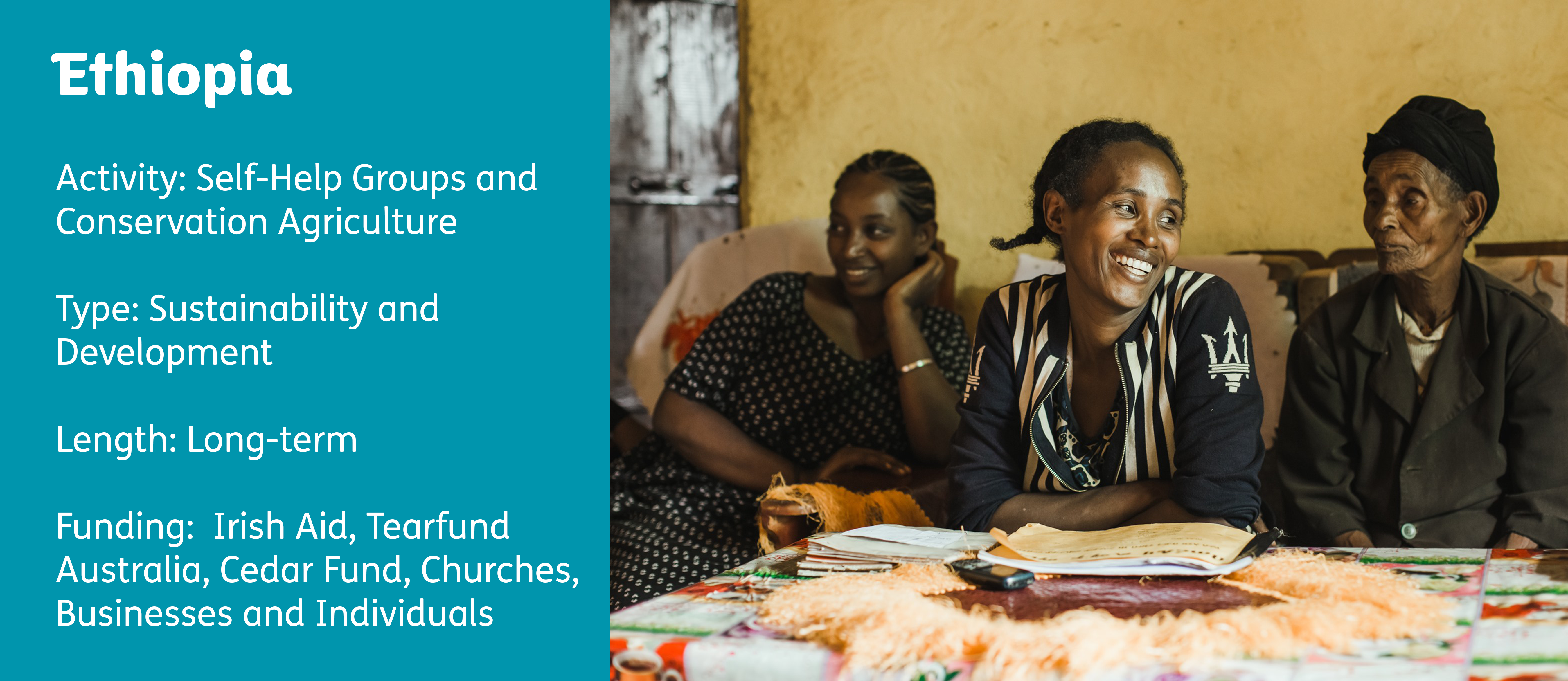Ethiopia

Credit: Gavin Leane
Tearfund Ireland works in the Ethiopian regions of Oromia and Southern Nations, Nationalities and Peoples with funding provided by Irish Aid. Tearfund Ireland and partners enable women to lift themselves and their household out of poverty through Self-Help Groups, train farmers and households in Conversation Agriculture and Sustainable Organic Farming, train communities to plan and be prepared for disasters and shocks, as well as piloting the cultivation of the Macadamia nut.
SELF HELP GROUPS
SHGs are groups of 15-20 women who are among the poorest in their community. The SHG creates a platform for these women to build relationships, solve problems together, save money and receive low interest loans and have an informal insurance in times of shocks. The SHGs give out loans to their members and these are usually invested in individual or group income generating activities, increasing their household income. The SHG approach works solely with assets and resources available through their own members. This approach increases the sense of ownership, dignity, and self-confidence among the women. The members of the SHG also experience joint democratic decision making, law and order as they develop their own constitution and bylaws for their group, and they practice leadership and bookkeeping. The SHG meetings are also used to teach women on HIV, COVID-19 awareness, and other important topics.
CONSERVATION AGRICULTURE
Conservation Agriculture (CA) is an approach that requires a very low resource input for a high return and is especially suitable for smaller scale farmers. It is based on three principles: minimum tillage, mulch cover and crop rotation. It increases productivity of land by retaining moisture, improving soil fertility (particularly in drought prone areas), while reducing the use of expensive fertilizers. The principle of Sustainable Organic Agriculture (SOA) is to use land which has so far not been considered for planting, such as a family’s backyard to grow variety of crops. The household benefits from their own grown vegetable and crop and can improve nutrition or income if they chose to sell their products